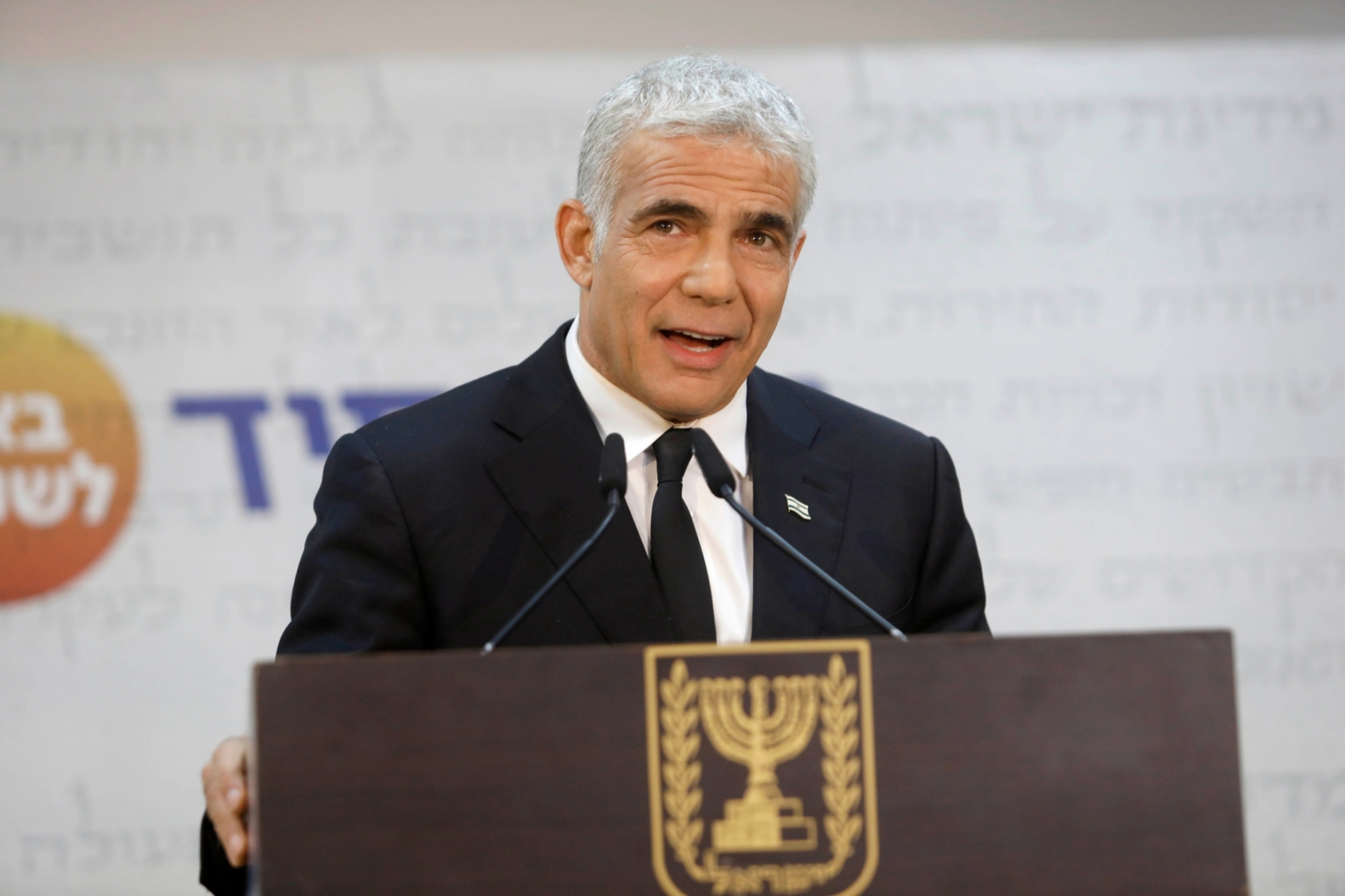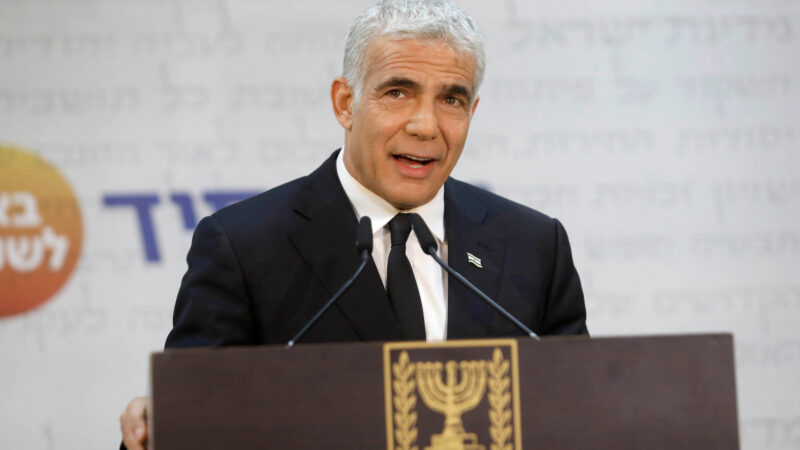Abstract: Israel is headed towards the fifth round of elections in three years, every time with new coalitions of political parties with a new set of election mandates. Former premier Naftali Bennet’s once-promising political journey was cut short because of the inherent fragility in the coalition that made up his government. The coalition couldn’t survive the ideological diversity it represented, once again exposing the vulnerabilities prevailing within Israel’s political landscape. The internal political turmoil has impacted Israel’s international stature. Benjamin Netanyahu is set to regain his lost position, and being the able leader he is and considering his political experience, likely, Israel will once again hand over the mantle to him.
Problem statement: What caused the downfall of Naftali Bennet? Where is Israel heading towards and will there be an end to the looming political crisis?
Bottom-line-up-front: Israel’s political landscape is deeply fractured. Highly diverse ideology and divided political support have been hindering the formation of a stable and efficient government at the centre. However, there is a strong need for political stability in Israel to tackle both internal and external challenges. Currently, Benjamin Netanyahu looks most determined to take charge to end the political turmoil.
So what?: Having to tackle several threats in the region and within the state, a stable government with a strong leader is imperative for Tel Aviv at the moment. The ball is in the court of Israeli citizens, who have to carefully decide whether to be directed by anti-Netanyahu narratives or keep national interest as a priority and make the right electoral choice. The outcome of the November elections will be under international scrutiny and will decide Israel’s stature and the health of its political system.

Source: shutterstock.com/Gil Cohen Magen
Five Elections in Three Years
Naftali Bennet’s short-lived premiership of little more than a year has exposed Israel’s vulnerable domestic political landscape. Despite the new incumbent Prime Minister, Yair Lapid, being sworn in, the Knesset will go for another round of elections on November 1, 2022. This will be the fifth set of elections in three years, and the contending parties and their respective politicians seem to want to leave no stone unturned. Most significantly, Likud’s former and long-serving Prime Minister Benjamin Netanyahu has kick-started his campaign to return to the helm of political power in Tel Aviv. Left-wing parties like the United Arab List are seeking more votes and seats in the Knesset this time and are looking to be game-changers.
This will be the fifth set of elections in three years, and the contending parties and their respective politicians seem to want to leave no stone unturned.
From Kingmaker to King
Irrespective of who becomes the victor, the major challenge that will stare right into the Knesset is maintaining stable support within and among parties. This issue challenged Netanyahu’s tenure and, most recently, that of Bennet’s. Naftali Bennet began his premiership on a great note, with widespread support from those who supported Netanyahu’s exit. Bennet emerged as a leader leaning farther right than Netanyahu himself. He made clear his position on Israel’s sovereignty over the West Bank, East Jerusalem, and the Golan Heights and criticised his predecessor for not being ‘pro-settlement’ enough[1]. From beginning his political journey as Netanyahu’s close confidant and chief of staff, Bennet ascended to Israel’s upper political echelons, leading an opposition party only in a matter of years. The millionaire who once donned the role as the head of a tech-giant, media-savvy Bennet was unsparingly rooted for his ultra-nationalist ideas and was determined to root out anything else. After being part of several ministries since 2013, Bennet founded his ‘rightwards’ party in July 2019. From losing his seat at the Knesset representing the Jewish Home party in the April 2019 election to regain the seat in the September 2019 elections from a different party, Bennet’s political clout only thickened. Eventually, he was perceived as a significant threat to Netanyahu’s political ambitions. Netanyahu’s efforts to keep his nemesis closer, however, did not fructify. As the leader of the Yamina party, Bennet rejected Likud’s alliance request and allied with Yair Lapid’s Yesh Atid party after the 2021 elections, ending Benjamin Netanyahu’s stride as the longest-serving Prime Minister after Ben Gurion.
Prime Minister Naftali Bennet (September 2021- June 2022)
Although Naftali Bennet, with alternate Prime Minister Yair Lapid, emerged victorious to form the government, the coalition they led was very diverse. It seemed like the driving reason for the alliance was the parties’ anti-Netanyahu stance. It had representations from the far-left Islamist parties like Ra’am to centrists and far-right parties, namely, the Yamina itself. The diverging ideologies between these parties led to frequent clashes over decisions relating to domestic laws[2]. Most importantly, they were not on the same page with security-related matters such as protests and marriages between Israelis and Palestinians. The realisation of political differences caused the weakening of the coalition, with members and parties disassociating themselves.
It seemed like the driving reason for the alliance was the parties’ anti-Netanyahu stance. It had representations from the far-left Islamist parties like Ra’am to centrists and far-right parties, namely, the Yamina itself.
On the one hand, members left the coalition to oppose Bennet’s stance; on the other, they left because of Bennet’s inability to control the decision-making process. In particular, the debate over the extension of a law that applies Israeli laws on settlers pronounced the end of Bennet’s premiership. Disagreement over whether to renew the law that was brought into effect in 1967 pushed Bennet to finally bite the bullet and call for the dissolution of the Knesset. He would never allow compromising on the renewal under his watch. After exhausting the available options, he went ahead with the dissolution of the Knesset[3]. When Bennet handed over his responsibilities to Yair Lapid, he called it quits to run for elections in the future.
The government under Yair Lapid remains fragile as the opposition party successfully garners support[4]. However, unlike former military man Bennet, Lapid’s journalist instincts might allow him to take a different approach. He is also touted to throw a tough fight in the upcoming elections as he is already a household name, a legacy of his time as a columnist. His conduct of business will be the focus in the months leading to the elections. US President Joe Biden’s visit to Tel Aviv seemed to have reassured the bonhomie between the two states. Biden pledged support for Israel to expand its ties with other Arab states, particularly Saudi Arabia[5]. To his benefit, the US President did not raise the issue of reopening the consulate in Jerusalem, a move many Israeli ministers uncompromisingly oppose[6]. The issue could have stirred another political debate in Israel during an already tense period. Lapid will have to earn enough leverage by unlearning ‘the Bennet way’ to face his major rival Netanyahu in the November polls and secure his premiership, who will fight hard to become the Prime Minister again.
With Bennet Out, Can Netanyahu Make a Rebound?
A few right-wing parties that withdrew support for the Bennet government were also responsible for his downfall. This predicament can also be attributed to Netanyahu’s eloquence as he relentlessly accused the Bennet government of lowering the prestige of the Israelis and moving to the far left to accommodate different political parties and their ideology, more specifically the Raam’s involvement in the coalition[7]. ‘We will not allow harm to national honour’, Netanyahu recently thundered in one of his speeches, referring to Ra’am and other parties whose help led to the formation of Bennet’s coalition government.
Netanyahu remains the fiery leader who wants national security and Israel’s Jewish identity to be of primordial concern. By all possible means, Netanyahu suddenly looks to salvage the fractured mandate witnessed so far. This perhaps is also an opportunity for the political veteran to disprove the promises made by Bennet’s government, for which Israeli voters had high hopes. Undoubtedly, any leader has not yet matched the acumen of Netanyahu in international affairs and among world leaders, his skills in managing national security, and an uncompromising attitude towards the Jewish identity. The opportunity that existed for the last year has been primarily wasted. The overall stature of Israel has gone down in international affairs because of the internal political turmoil. The latest poll data indicates that the Yamina party of Ayelet Shaked would get merely five seats. In such a scenario, switching their alliance to Likud would be the best possible option, as Likud would perhaps not receive anything less than 34 seats, followed by the Religious Zionist Party (9), Shas (8), and the United Torah Judaism (7).[8] This would lead to two more seats than the simple majority of 61 seats in the parliament, good enough for Benjamin Netanyahu to form a government.
The latest poll data indicates that the Yamina party of Ayelet Shaked would get merely five seats.
Toward a Stable Government or a Furtherance of Political Crisis?
Israel’s political culture has both positive and negative sides. On the one hand, the voting pattern shows the democratic rights being displayed by citizens to vote for whom they want in a multiparty system. On the other, it also highlights the limitations of democracy that cannot always ensure a stable government leading to fractured mandates and governance issues. This is a tricky situation; as a state dealing with multilayered threats in the region, the absence of an efficient government at the centre will hamper Israel’s policy-making and overall stature. The Abraham accords have been a great source of solace, bringing several Arab states (erstwhile adversaries) together to interact with Israel. Internal disturbance can be a significant factor in disrupting Israel’s stability. A stable Israel is in the interest of the region and others doing business with Israel. Will the voting behaviour be directed by anti-Netanyahu sentiments or the nation’s long-term security interests? The answer is not with anyone else but with the Israelis, who are frustrated with the tremendous electoral setbacks since 2019. The prospects depend on their vote in November 2022. Until then, Israel could witness political parties steering a high-octave political drama.
Dr. Nanda Kishor M S is an Associate Professor at the Department of Politics and International Studies, Central University of Puducherry, Puducherry, India, and formerly Head, Department of Geopolitics and International Relations, Manipal Academy of Higher Education, Manipal. He has been teaching Geopolitics of West Asia, India’s Foreign Policy, Concept of War and Peace in Geopolitics, Terrorism and Asymmetric Conflicts. Dr. Kishor has been working on conflict resolution, West Asia (Middle East), refugees, and international law. He has several publications in journals and edited volumes, apart from being a regular columnist in several online forums and newspapers.
Poornima B is a doctoral candidate and TMA Pai Fellow at the Department of Geopolitics and International Relations, Manipal Academy of Higher Education, Karnataka, India. Her research interests include the Middle East and North Africa geopolitics, conflict studies, India-Middle East relations, cyber, and maritime security. Her articles have appeared as chapters in edited volumes and on various platforms like The Diplomat, E-International Relations, The Sunday Guardian, The Deccan Herald, including an international journal, Journal of Asian Studies and International Relations.
The views contained in this article are the author’s alone and do not represent the views of Pondicherry University or the Manipal Academy of Higher Education.
[1] “Naftali Bennett Sworn in as Israel’s New Prime Minister: All You Need to Know about Him,” June 14, 2021, https://www.outlookindia.com/website/story/world-news-naftali-bennett-sworn-in-as-israels-new-prime-minister-all-you-need-to-know-about-him/385122.
[2] Harinder Mishra, “Israel’s Experiment with Most Diverse Coalition Government Comes to an End, Sets 5th Polls in Less than Four Years,” ThePrint, June 30, 2022, https://theprint.in/world/israels-experiment-with-most-diverse-coalition-government-comes-to-an-end-sets-5th-polls-in-less-than-four-years/1018884/.
[3] Shira Rubin, “Israeli Leader to Dissolve Knesset and Set Stage for New Elections,” The Washington Post, WP Company, June 23, 2022, https://www.washingtonpost.com/world/2022/06/20/israel-knesset-coalition-dissolve-bennett/.
[4] Eliav Breuer, “Israel Elections: Netanyahu Bloc Secures 61-Majority in Poll,” The Jerusalem Post, July 8, 2022, https://www.jpost.com/israel-elections/article-711537.
[5] “Joe Biden Visits Israel on First West Asia Tour as U.S. President,” The Hindu, July 15, 2022, https://www.thehindu.com/news/international/joe-biden-visits-israel-on-first-middle-east-tour-as-us-president/article65637067.ece.
[6] Raf Sanchez, “Biden Promised to Reopen the Jerusalem Consulate Trump Closed, but Can He?,” NBCNews.com, NBCUniversal News Group, November 6, 2021, https://www.nbcnews.com/news/world/biden-promised-reopen-jerusalem-consulate-trump-closed-can-rcna4539.
[7] Josef Federmann, “Israel Swears in New Coalition, Ending Netanyahu’s Long Rule,” AP NEWS, Associated Press, June 13, 2021, https://apnews.com/article/israel-knesset-benjamin-netanyahu-naftalia-bennett-deea22832a1cb2d95736f342958083fd.
[8] “Poll Shows Shaked’s Yamina Winning 5 Seats, Capable of Giving Netanyahu a Majority,” The Times of Israel, June 30, 2022, https://www.timesofisrael.com/poll-shows-shakeds-yamina-winning-5-seats-capable-of-giving-netanyahu-a-majority/.






